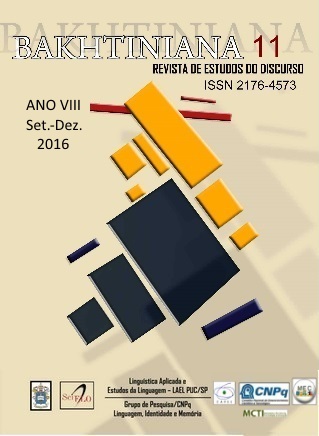A palavra poética no ter-lugar da língua: estética, ética e política
Mots-clés :
Linguagem poética, Negatividade, Estético, Ético, PolíticoRésumé
Trata-se de um trabalho que objetiva especular sobre a natureza e a função da palavra poética do ponto de vista da relação que estabelece entre o estético, o ético e o político. Inquieta-nos saber como a linguagem poética, inscrita no seio da língua, pode se configurar como um gesto de resistência e subversão ao investir na não-representação e na apresentação de um (quase) ser nascente no aqui e agora de sua presença no “ter-lugar” da língua. Filósofos contemporâneos, como Alain Badiou e Giorgio Agamben, apontam possíveis respostas para essa questão por meio da operação de negatividade que se faz na língua, de modo a torná-la não informativa. Barthes também acena nessa direção ao se deter sobre o vazio da aparição do “é isto” na forma poética do haicai, que bloqueia qualquer interpretação ulterior. Espera-se que esses modos de pensar o poético possam oferecer à crítica literária novos parâmetros investigativos.
Statistiques
Téléchargements
Publié-e
Comment citer
Numéro
Rubrique
Licence
Les auteurs concèdent à la revue tous les droits d’auteurs en ce qui concernent les travaux publiés. Les concepts émis dans les articles signés sont d’absolue et exclusive responsabilité de leurs auteurs.








